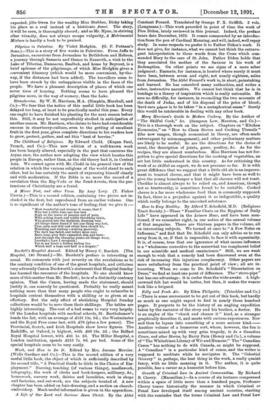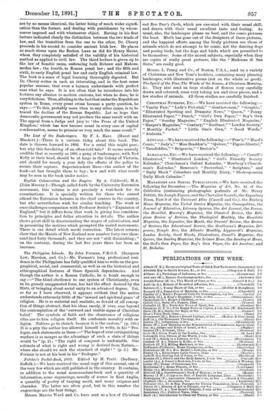Growth of Criminal Law in An.cient Communities. By Richard R.
Cherry. (Macmillan.)—In a course of six lectures compressed within a space of little more than a hundred pages, Professor Cherry traces historically the manner in which Criminal or Penal Law developed itself among ancient societies, starting with the reminder that the terms Criminal Law and Penal Law are by no means identical, the latter being of much wider signifi- cation than the former, and dealing with punishment by whom- soever imposed and with whatsoever object. Having in his first lecture indicated clearly the distinction between the two kinds of law, and the transition from the one to the other, Dr. Cherry proceeds in his second to consider ancient Irish law. He places as much stress upon the Brehon Laws as did Sir Henry Maine, whom they completely satisfied of the validity of his historical method as applied to civil law. The third lecture is given up to the law of Semitic races, embracing both Hebrew and Mahom- medan law ; the fourth, to Roman penal law; and the fifth and sixth, to early English penal law and early English criminal law. The book is a mass of legal learning thoroughly digested. But Dr. Cherry writes in such an interesting, and in the beat sense popular manner, that even a layman understands with perfect ease what he says. It is not often that he introduces into his lectures any allusion to modern customs, but when he does, he is very felicitous. Thus, alluding to the fact that under the Republican system in Rome, every great crime became a party question, he says :—" To this, probably more than to any other cause, is to be traced the decline of the Roman Republic. Let us hope that democratic government may not produce the same result with us. The appeal from a Judge and jury to 'the Press of the United Kingdom,' which has now become usual in every case of capital condemnation, seems to promise us very much the same result."











































 Previous page
Previous page